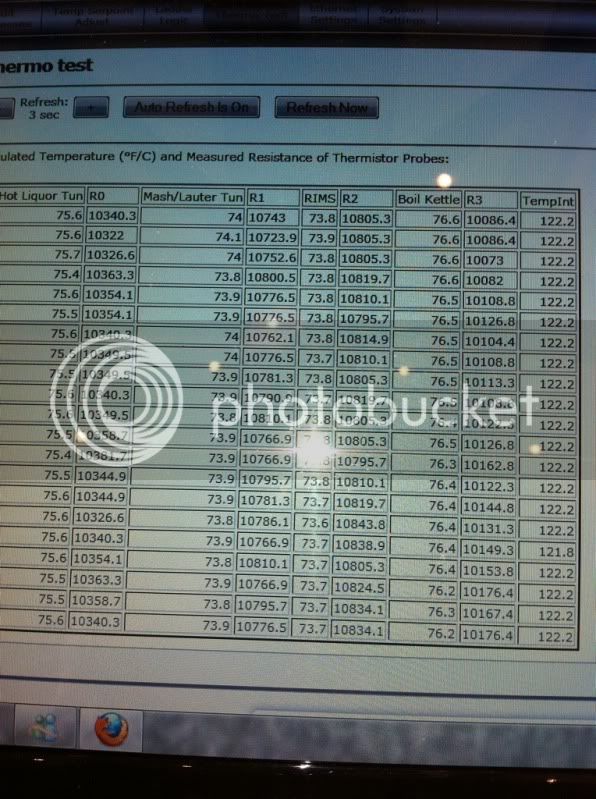I need to calibrate mt temp sensors on my new rig.
I am using Brewershardware sensors with a BCS.
The first problem I ran across, was the temps fuctuating approx 7 degrees.
With the sensor in an insulated mug,with ice water, My old digital thermometer stays steady 37.5 degrees, BUT, the temps read by th BCS change a few tenths at a time, and over the course of maybe 30 to 45 seconds (didn't time it)it went from 33 degrees to 40 degrees and back.
Any advise?
I am using Brewershardware sensors with a BCS.
The first problem I ran across, was the temps fuctuating approx 7 degrees.
With the sensor in an insulated mug,with ice water, My old digital thermometer stays steady 37.5 degrees, BUT, the temps read by th BCS change a few tenths at a time, and over the course of maybe 30 to 45 seconds (didn't time it)it went from 33 degrees to 40 degrees and back.
Any advise?






